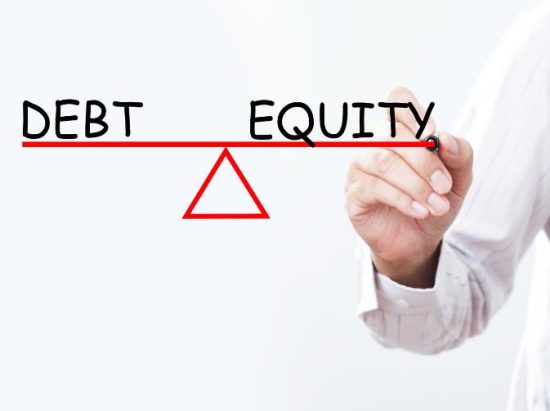
Imagine being able to change the course of a business with just one choice. Owning part of a company can give you this kind of power. This means what is equity in business is all about. It’s not only for experienced investors. Anyone who wants to know more about money and strategy should understand equity.
Equity is your rightful share of a business once all debts are paid. It shows how much of the business you own. It’s about your influence over the company’s future. Terms like equity value and equity capital show the parts of equity. They are the key aspects of a business and your financial power. In public companies, owning equity gives you a voice in decisions. This is because more equity means more control.
Looking at Ford Motor Company, we see that to make a big impact, you don’t always need to own most of the company. Even a small ownership can give you significant power. This is made possible by certain types of shares. It’s not just big companies that use equity. Startups often choose equity financing to grow, avoiding heavy debts. Knowing about equity is crucial. It affects a company’s future and your investments.
This guide will help you explore the world of business equity. It will explain what equity is and how important it is for managing money and planning for the future.
Key Takeaways
- Equity signifies your share of ownership and control in a business.
- Equity value materializes after settling all liabilities, positioning itself as a critical gauge of company worth.
- With substantial equity ownership, investors can influence company decisions on a broad scale.
- Equity financing presents a vital alternative to debt, offering a liberating route for company growth and expansion.
- Understanding the nuances of equity is essential for effective investment and strategic business involvement.
What is Equity in Business?
Understanding equity in business is vital for those in the corporate world. Equity is what shareholders would get if a company’s assets were sold off to pay debts. It’s like owning a part of a company’s assets and profits when you have shares.
By holding equity shares, you may gain financially. You also get a say in company matters. How much equity you have directly affects your influence, especially in big decisions. This could include voting for board members or other major choices, showing equity’s importance in business control.
Furthermore, a company’s equity value is key for investors. It helps them understand the company’s financial health and future growth. Knowing about equity can guide your investment decisions. These principles are important for investments in both public and private companies, showing equity’s crucial role in business strategy.
Exploring the Core of Equity Definition

Understanding equity is key in the world of business finance. It stands for the part of a company someone owns. This affects the value of the business and its strategies. Knowing about equity is important for both investors and those who want to learn more about business finance.
Equity’s Role in Company Valuation
A company’s worth is often based on its equity. The value of a business’s shares, minus its debts, shows its equity value. If investors have more equity, they can influence the company more. This may help boost the business’s value in the eyes of the public. Knowing this helps you understand a company’s financial situation better.
The Impact of Debt on Business Equity
When we think about equity and debt, it’s clear they affect a business’s value and control in different ways. Debt creates a loan that must be paid back with interest. It’s a financial burden. Yet, equity means ownership without the need to pay back. It gives a say in company decisions. But heavy debt can decrease the value of the equity. This influences the company’s risk and the power of its stakeholders. Knowing this helps you make wise choices when investing in a business.
Unraveling Types of Equity in Business
When you’re investing in business, it’s key to know about the different kinds of equity. This knowledge will help you manage your financial plan better. Various equity types give you different rights and chances, affecting your investment’s benefits.
Common vs. Preferred Equity Shares
Common equity shares are standard in public companies. They offer voting rights at meetings. On the other side, preferred equity shares give fixed dividends and priority in asset deals if the company closes. But, no voting rights come with them.
It pays to find a good balance between these shares. It can match up with your financial aims and how much risk you’re okay with.
Private vs. Public Equity Explained
Private equity is investing in businesses not on the stock market. Here, your investment could give you a larger say in how the business is run. Public equity means buying shares from listed companies. This spreads the ownership among many shareholders.
Choosing between private and public equity depends on your style and how much you want to be involved. It also depends on how much risk you’re willing to take.
The Critical Importance of Equity in Business Sustainability and Growth
Understanding why equity is key in business is vital for the business’s long term success and growth. Unlike loans, equity money makes the business financially strong without taking on more debt. This financial strength helps the business manage market ups and downs. It also helps the business grow without heavy debt.
Equity financing makes your business financially stable. It also makes it attractive to investors. With equity financing, your business can innovate and grow its operations. This helps your business stay ahead and grow sustainably. The smart use of equity money is crucial in all economic situations. It helps strengthen your business for success.
Understanding the critical role of equity in business leads to smarter choices and the better use of resources. Using equity money, your business can become stable and successful. This attracts more resources and investments. This, in turn, helps your business grow even more.
Comparing Equity vs. Debt: What’s the Right Mix for Your Business?

Understanding equity versus debt helps to keep your company’s finances healthy and flexible. It influences how easily you can get money and your financial risk. We’ll look at what might suit your business best by focusing on these two ways to get funding.
Advantages of Equity Financing Over Debt
Equity financing is good because you don’t have to pay back money regularly. This takes less toll on your cash flow. Unlike debt, equity doesn’t require fixed payments, taking on more risk but allowing for flexible investment. It also encourages a team effort among shareholders. They can add skills and help make important connections for your company.
Understanding the Debt to Equity Ratio
The debt to equity ratio shows how your company uses debt. It compares what you owe to what your owners have put in. This helps see your financial risk and if you might have trouble paying debt. A lower ratio is often better, signaling a stronger financial position and more freedom. Knowing your ratio can guide smart choices for the future of your business.
Insight into Equity Financing and How it Works
Equity financing is a key part of many modern business plans. It’s a strong option instead of borrowing money. With the right knowledge, you can use it to grow your business and try new ideas.
Angel Investors and Venture Capital: Equity Financing in Action
Angel investors and venture capitalists are very important in equity financing. They invest in companies and get a share of them. They also have a voice in how the company is run. This is especially helpful for new and growing companies that are very promising but can’t get big loans yet.
The Process of Raising Equity Capital
Raising equity capital means finding the right investors and making deals that help your business and its new owners. This way, you can build your finances without the pressure of quick repayments from loans. It helps your business grow steadily. For many, getting equity capital can be a turning point, moving from staying still to growing a lot in the market.
Scrutinizing Equity Ownership: Rights and Responsibilities
Exploring equity ownership brings both perks and roles. A share in a company gives you the power to vote on key choices and a chance for profits through dividends. But, it also comes with duties. You must actively partake in major business decisions and put the company’s interests first.
This duality of equity ownership means you have to think carefully about your choices. It’s essential to match your investment plans with the company’s long-term goals and principles. Your role can greatly impact where the company goes, making your part about more than just money.
Knowing your shareholder rights and equity stakeholder responsibilities is key. It helps the company grow and stay ethical, following laws and moral codes. Getting fully involved in equity ownership can make your investments more valuable and aid in the company’s overall success.
Deciphering Equity Value and Its Calculation

Knowing equity value well is key for investors looking to assess a company’s true value. If you’re thinking about investing or just checking a company’s financial status, the way you look at it matters a lot.
Market Value vs. Book Value of Equity
The market value of equity shows what people are willing to pay for a company’s shares right now. This is often influenced by current market trends and how investors feel. On the other hand, the book value is what’s on the company’s books. It’s calculated by subtracting liabilities from total assets. While market value tells us about the current situation, book value gives us a history lesson based on what the company actually owns.
Valuation Techniques: From DCF to EBITDA
One widely respected valuation technique is the discounted cash flow (DCF) method. It looks at future cash flows and brings them back to their value today. This method stands out because it deals with the time value of money, risks, and possible profits. Another common approach is EBITDA, which stands for earnings before taking out interest, taxes, and some costs. It’s a way to see how well a company is doing in its main operations, not counting some financial details, thus making it easier to compare to others in the same business.
Understanding the different valuation methods, from market and book values to DCF and EBITDA, is crucial. It helps you make decisions based on solid financial knowledge.
Conclusion: Understanding Equity Share and Shareholder’s Equity
In the financial world, understanding equity share and shareholder’s equity is key. An equity share is like owning a small part of a company. It’s part of what makes up the shareholder’s equity. This number shows the value investors would get if everything the company owns was sold, and debts paid.
Knowing about equity shares makes you, the investor, understand your part in a business. Your rights and what you earn are based on this. Shareholder’s equity includes the money you put in and profits the company chose to keep. These show how strong and valuable the company is to you over time.
If a company’s shareholder’s equity is strong, it can handle tough times and grow. It tells you a lot about the company’s financial health. This helps you make smart choices about investing. Knowing about equity can help you wisely invest and build your financial future.
FAQs on Equity in Business
What is equity in business plan?
In a business plan, equity refers to the amount of capital that owners have invested in the business, which represents their ownership stake. It is crucial for illustrating how much money owners have put into the business, which can affect both the company’s financial strategy and its attractiveness to potential investors or lenders.
What is equity in business in finance?
In finance, equity refers to the ownership value an investor has in a company, usually represented by shares of stock. It indicates the residual interest in the assets of a business after deducting all its liabilities, serving as a measure of the company’s net worth and financial health.






